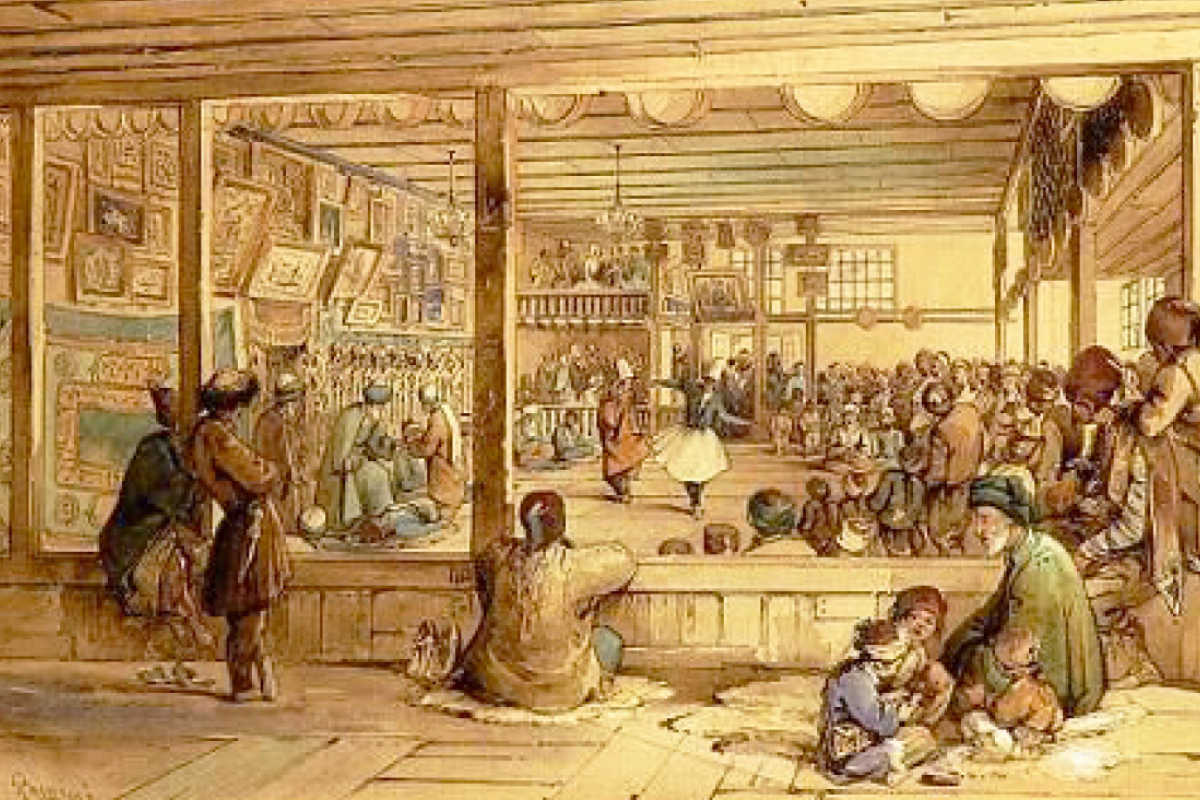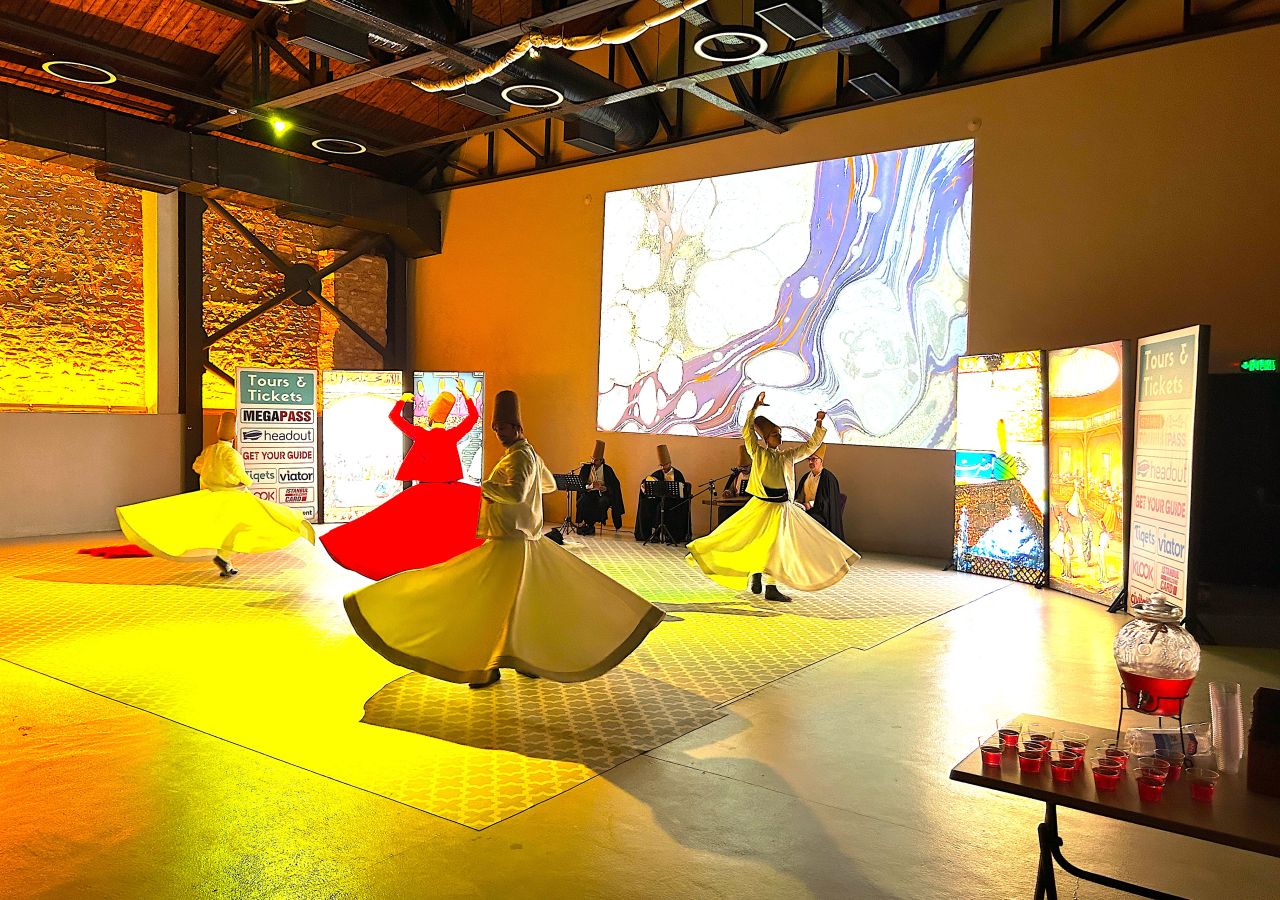
Whirling Dervishes in Istanbul is always one of the top curiosities and priorities among the travelers coming to Istanbul for centuries. Beyond the spiritual and moral cores of the way they are, there are few points to know about them before seeing their prayers.
The Followers of Rumi photographed in a Mawlawi House as Whirling Dervishes in Istanbul
Who are Sufi and Mevlevi?
Various descriptions have been made about the term “Sufi”. Most of these reflect the spiritual state of the person making the description or the characteristics of the message he wants to give him within the framework of the spiritual situation he is in.
In this context, on the one hand, Sufi constantly strives to be better and nicer by showing patience in need, distributing unconditional possessions, do good to everyone without discrimination, responding well to even bad deeds, depreciating worldly riches such as property, posts, fame, etc. Eventually, their spiritual characteristics and inner qualities, rather than their external appearances, enable them to purify their heart and soul along with godly love.
The term Mevlevi directly refers to the followers of the poet Mevlana Celaleddin Rumi, who established the order in centuries after his passing away in 13th century.
Rumi depicted in a miniature while delivering a speech
What is Sema?
Sema is the act and Semazen is the prayer and performer in the Mevlevi way. Semâ‘-zen is a word used to describe the Mevlevi, who is or does sema. The person who has recently become a member of the Mevleviyye sect and called can, muhip, Mevlevî root, and nevniyaz, bringing the coin takbir and dressing it with a ceremony (takbir), then the grandfathers are handed over to a master dervish who is called a dervish or sema grandfather.
The work done with this grandfather is called sema meski. Sema has certain features, 2 cm in the middle. It starts with the wheel throwing (making a cycle around the nail) on the sky board with a diameter nail. This instruction consists of a period in which the left foot is lifted from the ground and the body is turned to the left by lifting the right foot up to the knee of the left foot and throwing it to the left. As soon as the right foot is placed on the ground during the wheel, a new cycle begins with the same movements.
Even if the whirling dervishes do not perform sema every day for a certain period of time in order to prevent the emergence of complaints such as dizziness and nausea. Outfit of the Sema. The 45-50 cm. long, dark brown or camel hair colored felt cap "coin", a wide, flared skirt that opens like a propeller during the sema, the upper part that wraps the body and generally white color is preferred is called "tennûre".
Whirling Dervishes Ceremony in Istanbul painted by Amadeo Preziosi
The History of Sufi Mevlevi Order
The Mevlevi Order was found by followers of a mystic poet Rumi, who lived in the city of Konya in Turkey. Actually, Rumi was born in 1207 in the city of Balkh in Afghanistan today. His family migrated to west because of the sweeping Mongolian conquests from the east under the rule of Genghis Han that created a massive push towards west.
His father had already been a notable Islamic scholar. Until they settled in central Anatolia (the peninsula containing majority of Turkey's geography), they established strong connections with other influential figures from cities central Asia to Iran. When his father passed away in 1230s, he had taken over the community leadership. Rumi was a teacher and philosopher at the highest level. During his old age, he collected his most essential works under the title “Masnavi”. He was writing in Persian, which was known to be the most suitable language for poetic expressions. His students and followers gathered a huge portion of his letters after he deceased in 1273.
In the briefest fashion, his very sophisticated worldview and poetic quality were in fact a product of a great turmoil that fused cultures from China to the shores of Mediterranean Sea. His major message was always about love, being permissive and open. As his most renowned lines show as follows:
“Come, come, whoever you are,
wanderer, worshiper, lover of leaving,
it doesn't matter.
Ours is not a caravan of despair.
Come, even if you have broken your vow a hundred times.
Come, come again, come.”
If you would like to check a website dedicated for the Sufi Whirling Dervishes in Istanbul, here is the link: https://whirling-dervishes.istanbul/


